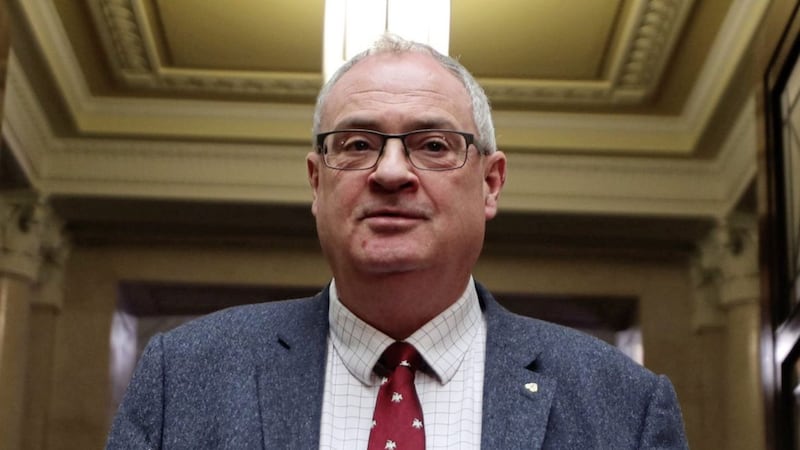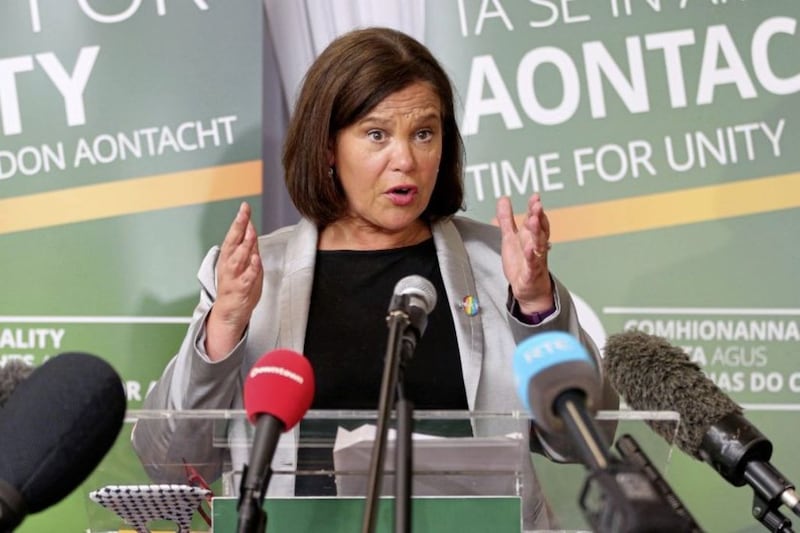May 24 marks the 100th anniversary of the first election to the new Parliament of Northern Ireland.
Held just a few weeks following partition, the poll saw an overwhelming win for the Ulster Unionists, who grabbed more than three-quarters of seats.
A century on, our five main parties are again gearing up for another election.
The swift dumping of two unionist leaders and an overhaul of Sinn Féin in Derry points to an imminent assembly poll.
No matter who is elected DUP leader, Sinn Féin is not expected to back the largest unionist party’s pick as first minister without some large concessions, primarily around the Irish Language Act.
Without Sinn Féin agreement, the secretary of state must call an election, most likely for the autumn.
Mindful that time is not on their side, three of our main parties are undergoing their own great purges.
DUP leader Arlene Foster - going. Ulster Unionist leader Steve Aiken - going. Sinn Féin MLAs Martina Anderson and Karen Mullan - going.
Only the SDLP and Alliance have, so far, escaped a shake-up.
It’s the political equivalent of a good red-up before relatives come round at Christmas: put your under-performing leaders and MLAs in a box and and take it to the dump.
Incidentally, red-up itself comes from the Middle English verb redden, which meant to clear or to free from or rescue.
While some DUP members may feel glad to have freed themselves from Mrs Foster, it’s more likely that she has inadvertently rescued herself from a party she no longer recognises.
Similarly, Steve Aiken will probably feel more relieved than disappointed by his resignation.
The Northern Ireland Protocol and subsequent loyalist protests have put unionist parties under severe pressure.
Terrified as being seen as soft on the union - the ultimate Paisley-era insult - the two parties are now trying to out-do each other to show who’s most furious about the protocol.
“Politics is a very brutal game,” Mrs Foster said after she was dumped by the party.
The DUP leader may get a rare nod of agreement from former MEP Ms Anderson.
While Ms Anderson was a divisive figure to say the least (who can forget her telling then Prime Minister Theresa May to stick her idea of a post-Brexit border 'where the sun doesn't shine’?) few could struggle to feel empathy for someone sacked by those she naturally would have considered friends and comrades.
Her entire life, including 13 years spent in prison, has been dedicated to the republican movement - a point hammered home when she posted a Twitter video filmed in front of the largest poster of the Proclamation ever seen.
In the video, Ms Anderson said that while most people who contacted her “had urged me to stay on… this struggle is bigger than any one of us”.
Unfortunately, the video had shades of Boxer being forced to tell the rest of the animals in Animal Farm he is perfectly fine with being sent to the knacker’s yard because it is all for the greater good.
“It has been a difficult time for Karen Mullan and I,” she said.
With photos of the all-male signatories of the Proclamation looming behind her, the optics of the party telling two female MLAs they had to go didn’t look terribly progressive.
Ms Anderson's family were more direct in their criticism of the party leadership, with her sister Sharon Burke saying the MLA had been "sacrificed" despite her long service.
There’s no doubt Sinn Féin in Derry has had a difficult couple of years. Elisha McCallion’s narrow victory over Mark Durkan in the 2017 Westminster election pointed to serious cracks in the SDLP’s Fortress Foyle.
But the loss of five Sinn Féin seats on Derry and Strabane council in 2019 and Ms McCallion’s defeat by SDLP leader Colum Eastwood, by a majority of more than 17,000, in that year’s general election showed Sinn Féin’s success was short-lived.
The triple resignation of two party officials and Ms McCallion, then a senator, in October over the failure to return £30,000 in wrongly-allocated Covid-19 support funds came as a further blow.
With just a few months to rebuild, the question for the DUP, Ulster Unionists and Sinn Féin will be are these drastic changes too little too late?
By October, we may well know the answer.








